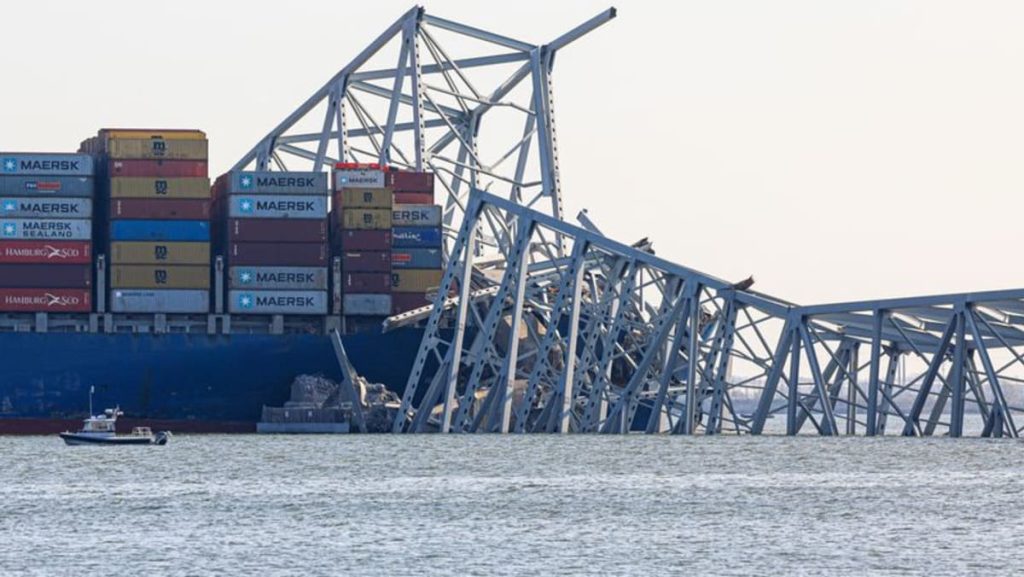ability in potential lawsuits related to the incident. The petition, filed in the US District Court for the District of Maryland, states that the owner and manager of the ship are seeking to invoke the Limitation of Liability Act of 1851, which allows a ship owner to limit their liability to the value of the vessel and its cargo. This means that if successful, any lawsuits filed against the owner and manager would be limited to the value of the cargo ship and its contents.
The cargo ship, named the OSC Giant, was carrying a load of containers when it collided with the Key Bridge last week, causing a section of the bridge to collapse. The incident, which resulted in no injuries or fatalities, has raised questions about the safety of cargo ships navigating through narrow waterways like the Patapsco River in Baltimore. The petition filed by the ship owner and manager indicates that they are anticipating potential lawsuits related to the incident and are seeking to limit their financial liability in such cases.
The Limitation of Liability Act of 1851 has been used in the past by ship owners to protect themselves from extensive financial damages in the event of accidents or incidents at sea. The act allows ship owners to limit their liability to the value of the vessel and its cargo, which can provide significant financial protection in cases of catastrophic accidents. However, critics of the act argue that it unfairly limits the ability of accident victims to seek full compensation for damages and injuries.
In response to the petition filed by the ship owner and manager, legal experts have noted that the Limitation of Liability Act of 1851 is a complex and often controversial legal mechanism that can have significant implications for accident victims seeking compensation. While the act can provide financial protection for ship owners, it can also limit the ability of accident victims to receive full and fair compensation for their losses. Additionally, some have raised concerns about the potential for abuse of the act by ship owners seeking to avoid financial responsibility for accidents or incidents.
The outcome of the court petition filed by the ship owner and manager will likely have long-term implications for the legal and financial consequences of the cargo ship collision with the Key Bridge in Baltimore. If successful, the ship owner and manager could potentially limit their liability in any lawsuits related to the incident, which could impact the ability of accident victims to seek full compensation for damages and injuries. The case highlights the complex and often controversial legal issues surrounding maritime accidents and the balance between protecting the rights of accident victims and ensuring financial stability for ship owners.
As the legal proceedings continue in the aftermath of the cargo ship collision in Baltimore, it remains to be seen how the court will interpret the Limitation of Liability Act of 1851 and its application to the case. The outcome of the petition filed by the ship owner and manager will likely be closely watched by legal experts, accident victims, and the maritime industry as a whole. Ultimately, the case raises important questions about the balance between protecting the rights of accident victims and ensuring financial stability and accountability for ship owners in the event of maritime accidents.















